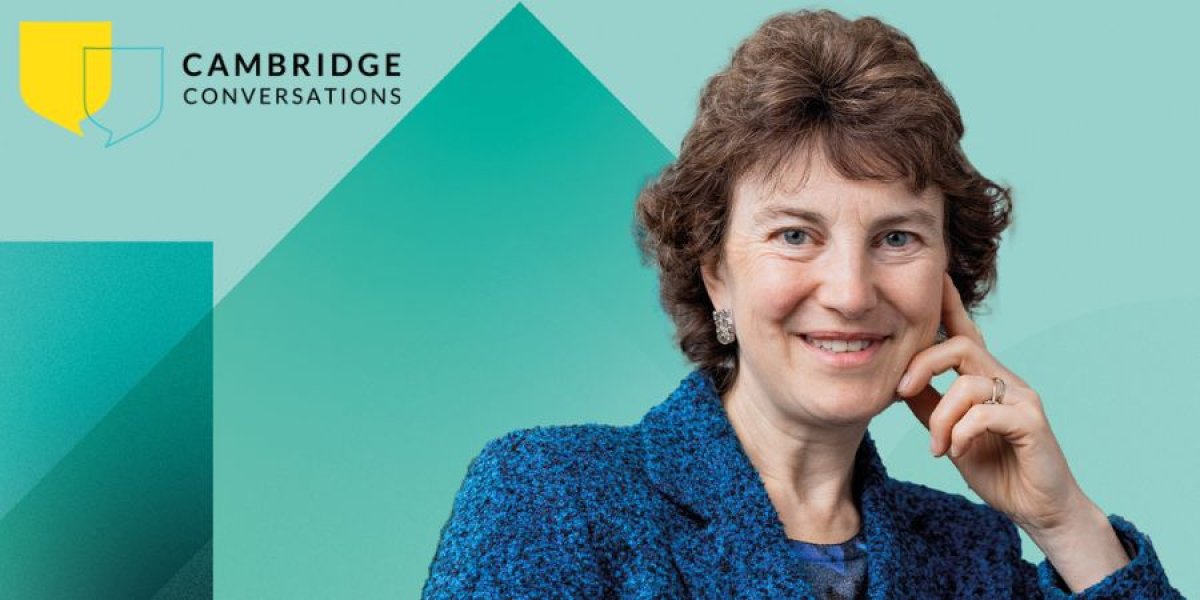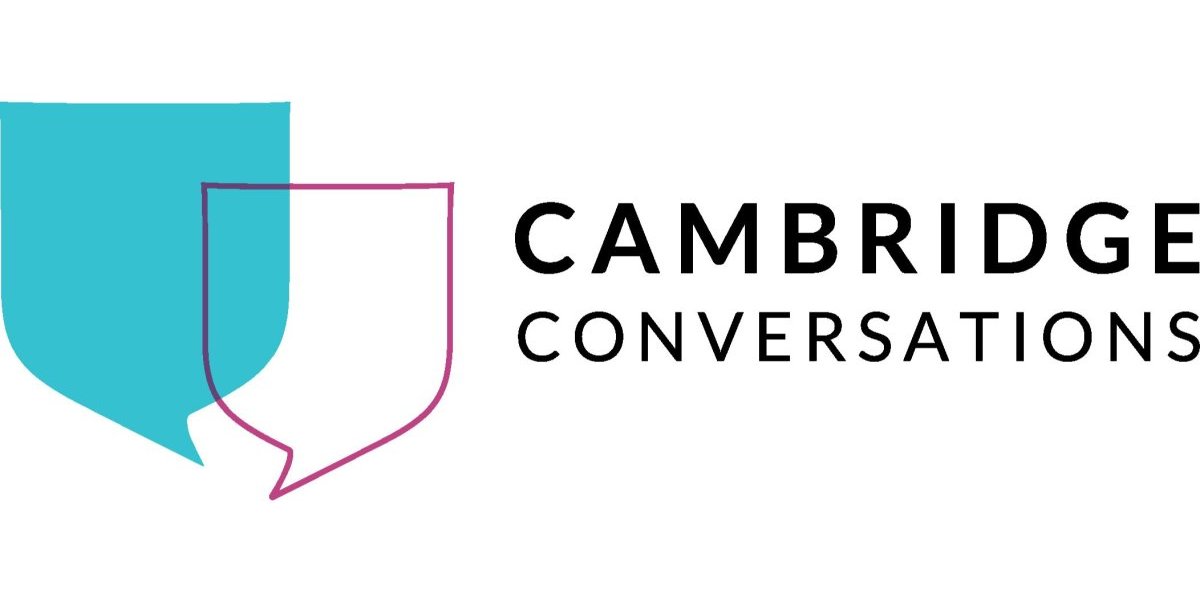Cambridge Conversations: Early cancer detection and prevention: the Cambridge approach
Cambridge Conversations: Early cancer detection and prevention: the Cambridge approach
Early cancer detection and prevention: the Cambridge approach
Professor Rebecca Fitzgerald and Professor Patrick Maxwell talked about how Cambridge is approaching early detection and prevention of cancer. They discussed emerging opportunities for catching cancer earlier - even at pre-cancerous stages. Rebecca is pursuing this in her own work and as leader of the Li Ka Shing Early Cancer Institute.
In this thought-provoking discussion, they considered questions such as:
- Why has early detection become so important?
- How early do we want to know about cancer?
- What technologies have made this possible?
- What else can we do to prevent cancer?
- Why is a multidisciplinary approach key to research in early cancer detection and prevention?
- What impact can universities have?
An edited recording of the webinar can be found on our YouTube channel.
From Stuart
I understand that AI is being used to interpret CT scans for breast cancers. What do you see as the future of AI in early detection?
There are several applications – some of these pertain to cancer in general and some more specifically for early detection. Interpretation of images which could be from imaging (CT, MRI etc) or digital pathology could be helpful for spotting subtle lesions and reducing clinical bottlenecks. These will probably start off as triage tools rather than replacing the pathologist or radiologist due to the regulatory hurdles (e.g. responsibility if an error is made). There is also exciting research about how AI can spot patterns in images that are not discernable by a human e.g. inferring a DNA count from a stained image of a nucleus on a pathology stain- this could enable us to make more precise risk predictions e.g. future risk of cancer in a pre-cancer lesion. Another area for AI is to spot risky/changes in behaviour or physiological changes (e.g. from smart watch) that could indicate a health change. For example, a recent study showed from loyalty card data that new purchases of indigestion remedies in women around specific age ranges could be an alert for ovarian cancer.
From Fiona
Given new digital diagnostics, how will the monitoring timescales be investigated and changed? For example - mammograms every 3 years. Is that now too long as very early detection would much reduce the impact?
Using large data-sets we can estimate sojourn times - the duration of the pre-clinical stage, or the length of the detectable pre-clinical period, is the sojourn time of the cancer. Recent work by Prof. Nora Pashayan at the Dept of Public Health and Primary Care in Cambridge has show that the age at the start of screening, but not necessarily the frequency of screening, should be tailored to a woman’s risk level. This is to help improve the benefit-to-harm balance.
From Liz
Where there is cancer running through a family (breast, pancreatic), at what stage should genetic counselling/genotyping be considered for family members to identify a common mutation (e.g. BRCA) that would identify who should go into closer monitoring/early intervention?
The first step is to understand if the frequency and distribution of cancer suggests an inherited basis. This is done by clinical geneticists who gather all the information on the specific cancer types (and subtypes) and the age of onset of the family members. When a genetic basis is suspected the next question is whether the specific gene mutations have been identified for that inherited syndrome or not. If so then genetic testing can be recommended/arranged if desired. If not then sometimes screening for precancerous changes (maybe a test not usually done, or a standard test done more frequently) can be offered without a known gene mutation.
Anon
We speak of cancer as if it is a single disease which it is clearly not. Does this mean any early detection will have to be tailored to specific cancers?
This is a very hot topic. There is a lot of work to develop early cancer tests for multiple cancers e.g. blood tests called multi-cancer early detection (MCEDs). These MCED tests may be able to detect up to 50 cancers at a time. However, an individual risk for cancer types varies and therefore it maybe more effective (and less risk of harms) to test for cancers individually based on a risk profile. At the moment the national screening programmes are designed around individual cancer tests based on risk thresholds mainly determined by age and sex – though for the new lung cancer check this is also based on smoking history.
From Anmol
Which cancers do you see the highest need for better early cancer detection methods?
I would say those with the poorest outcomes e.g. ovary, pancreas, brain, acute leuakemia.
From GN
How does the circulating tumour cell count and CtDNA fit in cancer early detection? (such as Signatera)
There is a move to develop early cancer tests for multiple cancers e.g. blood tests called multi-cancer early detection (MCEDs). These MCED tests may be able to detect up to 50 cancers at a time. Signatera is one such test. Some of these tests require information about the specific DNA profile of the tumour to find evidence of recurrence earlier. Other tests don’t require any prior information about the individual, but the challenge is to find the changes early enough to improve the outcomes e.g. some of the data suggests that they are detecting cancers that are already quite advanced but maybe the individual hasn’t had the diagnosis yet. Research in the field is aiming to improve, and combine, the technologies to the point that it is accurate enough to detect early changes which can be cured through an easy intervention – the crux is whether if you didn’t detect them early the outcomes would have been worse. Large scale, randomised trials should be ideally conducted to address these questions but there has been some reluctance by companies to do such trials.
From Sue (highest voted question)
A friend in Canada had a routine blood test specifically to detect cancer markers. She was found to have and successfully treated with surgery for early stage lung cancer. She had no symptoms at this early stage. Is there a reason why we don't have such blood tests here for early detection?
This is a very positive story, and this is the goal. However, what we still don’t know for certain is whether if you didn’t such a cancer early whether it would have gone on to progress and if so whether the outcomes would have been worse. Large scale, randomised trials should be ideally conducted to address these questions but there has been some reluctance by companies to do such trials. In the UK there is a feeling that we need more evidence before we can recommend such tests.
From Trevor
What are the most important diagnostic tests to get done regularly as we get older? What is the best source of advice on cancer prevention, prior to early detection?
From Jeff
What sort of early screenings do you recommend?
[answering both questions]
Ageing is a risk factor for cancer and that is generally the basis of the screening programmes we have in the UK. I would recommend taking the tests recommended by the National Screening committee according to their criteria (e.g. colon, breast, cervix, lung in smokers) – some countries have slightly different age and frequency criteria and there is some evidence to suggest we should start bringing these tests earlier e.g. as per US guidance for colon cancer. Cancer prevention would include all the healthy living advice we are familiar with including not smoking, not drinking in excess, healthy exercise, diet etc.
From Rachel
Can the technology used in the cytosponge be applied to other types of cancer for early detection?
The concept of sampling cells and combining with biomarker tests is something that can be broadly applied. The specific technology is really most applicable to the oesophagus- though we may be able to detect changes in the stomach (work ongoing).
From Carol
Do we have enough support to bring forth our research towards commercialization?
More support is needed. It is a big leap to go from academic discoveries to making a product that can benefit patients. There are a number of innovative programmes to help support this e.g. https://innovativegenomics.org/enterprising-science-program/ and I would love to do something similar in Cambridge.
From Julia
Do you believe that eating organic food/avoiding pesticides and also not drinking alcohol can have a role in preventing cancer from developing? Especially in individuals who may have a genetic predisposition.
Cancer prevention would include all the healthy living advice we are familiar with including not smoking, not drinking in excess, healthy exercise, diet etc. Whether organic food and avoiding pesticides is important is difficult to evaluate. Overall alcohol is best kept low level and maybe avoided altogether. However, I would say we need to enjoy living as well!
From Ben
Is there any role for lasers in early cancer detection?
There is a lot of research to evaluate the use of various optical techniques, including use of lasers, to find cancers earlier. Lasers can also be used to treat and remove early cancers in a minimally invasive manner. You might be interested to look up the work of Sarah Bohndiek who has a joint appointment in the CRUK Cambridge Institute and the Dept Physics.
Cambridge Conversations
In April 2020, the university launched a series of webinars to give alumni digital access to the pre-eminent research at Cambridge. Covering a myriad of topics, our webinars give you the opportunity to watch our world-leading academics discuss key issues, and to take part in real-time Q&A sessions. Cambridge Conversations is now in its fifth year, allowing you to listen, connect and engage with current Cambridge thinking, wherever you are.
Speakers
Professor Rebecca Fitzgerald OBE FRS FMedSci FRCP EMBO (Girton 1986, Clinical Medicine)

Rebecca Fitzgerald is a Professor of Cancer Prevention and Founding Director of the Li Ka Shing Early Cancer Institute at the University of Cambridge and practices medicine as Hon. Consultant in Gastroenterology and Cancer Medicine at Addenbrooke's Hospital. Rebecca is the Cambridge lead for the CRUK International Alliance in Early Detection (ACED). Her research aims to understand how tissues become cancerous and whether identifying pre-cancer at scale can reduce cancer morbidity and mortality, focussing on the oesophagus and stomach. Her work to develop and implement a non-endoscopic capsule sponge and related biomarker assays for detection of Barrett's oesophagus and associated dysplasia has been awarded several prizes including the Westminster Medal, an NHS Innovation prize and the Don Listwin Early Detection Prize. In 2022 Rebecca was awarded an OBE for services to cancer research. Rebecca has contributed to evidence reviews and policy work around screening including for the Department of Health in the UK and recently led a review of cancer screening for the European Commission that led to new screening policy for EU member states.
Professor Patrick Maxwell FMedSci

Patrick Maxwell is Regius Professor of Physic and Head of the School of Clinical Medicine at the University of Cambridge.
As a clinician scientist, he has been centrally involved in a series of discoveries that have revealed how changes in oxygenation are sensed, and how genetic alterations cause kidney disease.
Patrick is a Fellow of the Royal College of Physicians and the Academy of Medical Sciences, Director of Cambridge University Health Partners and a Non-Executive Director of Cambridge University Hospitals, Cambridge Enterprise, Scottish Mortgage Investment Trust and the International Biotechnology Turst.
Booking information
Booking for this event is now closed.

